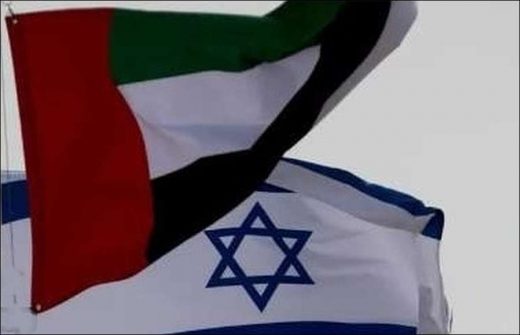İsrael – Hamas war. The repercussions of the Aqsa Flood Operation launched against Israel by Hamas, which controls the Gaza Strip, continue. The attack, which has been unprecedented since the founding of the state of Israel, is likened to the Yom Kippur attack in terms of its size and effects.
However, Israeli officials and experts point out that nothing will be the same in the region anymore and call the attack “Israel’s September 11” in terms of its political consequences. Hamas, on the other hand, puts the “Palestinian cause”, forgotten with the “Abraham Accords”, on the agenda of the Middle East again.
The massive raid carried out by Hamas at dawn on Saturday, October 7, Shabbat, by crossing the Israeli border and bypassing all Israeli intelligence, dates back to October 1973, which was initiated 50 years ago by the former president of Egypt, Anwar Sadat, and the former president of Syria, Hafez al-Assad. It has been compared to the Yom Kippur war.
This attack significantly weakened the state of Israel and forced it to withdraw from the territories it occupied during the “Six-Day War” in June 1967. The attack also triggered the ‘Arab oil embargo’, which triggered a massive increase in crude oil prices of regional superpower Saudi Arabia and King Faisal, shaking the world economy and the balance of power in the Middle East. So how did Hamas bypass Israeli intelligence and army and carry out such a massive attack 50 years later? And more importantly, why now?
Israel’s September 11
Hamas’ bloody attack on the Jewish state has been compared to the Yom Kippur War in October 1973. However, for Gilles Kepel, an expert on Islam and the contemporary Arab world, a professor at the Paris Faculty of Arts and Sciences (PSL) and director of the Middle East-Mediterranean chair at the Ecole Normale Superieure, the operation is more reminiscent of September 11, 2001, and it is an attack against not only Israel but also the Western powers. constitutes a coup. Israeli administrators also call the attack “Israel’s September 11”.
Yom Kippur or September 11, although the analogies are different, there is one important point that everyone agrees on; That this attack is unprecedented and that many things will change in the Middle East from now on…
Gilles Kepel, in his article published this morning in Le Figaro newspaper, said, “The so-called impassable and extremely expensive security barrier was breached and passed with alarming ease, entered by land, flown through the air, and by-passed by the sea. Hundreds of civilian and military hostages were taken to tunnels in Gaza accompanied by lynching scenes.
Streets full of corpses are a horrific sight spread around the world by social media. This is something unheard of since the 1948 war that established the state of Israel. Whatever the extent of the destruction the Palestinian enclave has already suffered in retaliation, the blow struck is unprecedented. This blow was symbolically aimed at Israel; “But it is also a blow to the West and the North Atlantic, which are hated by many Arabs, Muslims and colonized third world peoples.”
Like the former French Minister of Foreign Affairs, Hubert Vedrine, Gilles Kepel also stated that, just like the September 11 attacks, even though Al Qaeda ended 2 years after the attack, “the Al-Aqsa Flood operation ended the system of America being a superpower, and 20 years later, the BRICS came to an end after the Ukrainian war.” It has paved the way for conflictual multilateralism, which has led to its ubiquity,” he says.
Israel’s normalization efforts with Arab countries
Most Arab countries specifically blamed Israel and its occupation of Palestinian territory for the outbreak of violence, except for the United Arab Emirates and Morocco, which normalized relations with the state of Israel and called for de-escalation. Although Saudi Arabia is conducting normalization negotiations with Israel under the auspices of the United States, it condemned the policy of the Tel Aviv administration.
In order not to lose the leadership of the Arab-Muslim world to its Shiite rival Iran and to prevent it from using this rapprochement against itself in the Islamic world, the Riyadh administration put aside its attempts to get closer to Israel and subjected Israel to “occupation and deprivation of the legitimate rights of the Palestinian people, as well as deprivation of their holy places.” He made a statement “warning against the risks of possible escalation of tension due to systematic provocations against
Le Figaro’s Middle East expert and journalist writer Georges Malbrunot also drew attention to this point and wrote that Israel’s rapprochement with Sunni Arab countries was “endangered by the shock operation of Iran-backed Hamas.” According to Malbrunot, Hamas aims to prevent “the restructuring of the Middle East around a new Arab – Israeli axis that is hostile to Iran and forgets the Palestinian cause.” Malbrunot writes that it is “very clear” that Riyadh will slow down this normalization initiative.
The journalist adds that US Secretary of State Antony Blinken called his Saudi counterpart and asked him to “condemn Hamas terrorism, but Riyadh did not accept this proposal.” Experts point out that Hamas’ Shiite rival Hezbollah also made a statement celebrating the attack on Sunday morning. Western capitals fear that Lebanese Hezbollah will open a second front in northern Israel.
Visits: 51



